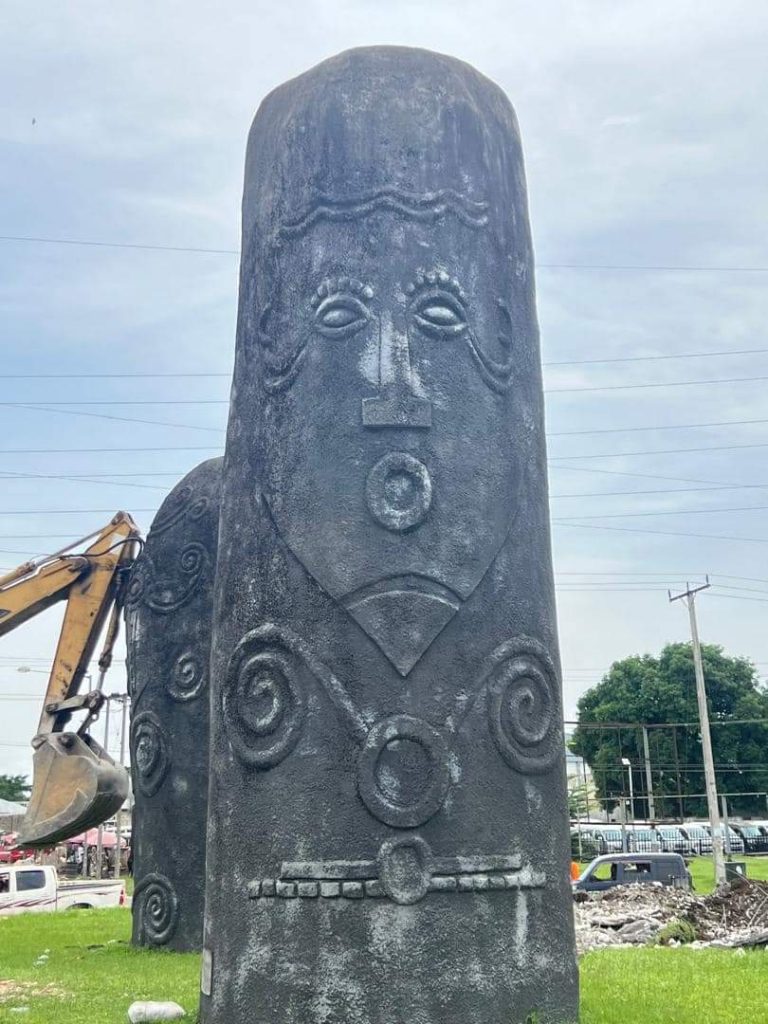The recent demolition of the iconic Monoliths sculpture at Zone 6 roundabout in Calabar has left residents and art enthusiasts in shock and disbelief. The sculpture, which stood as a symbol of Calabar’s cosmopolitan identity and rich heritage, was designed and built by the late Pastor Anthony Akinbola, a renowned Nigerian artist who has many works in other cities in Nigeria and has done exhibitions even in the United States.
For many, the Monoliths roundabout was more than just a piece of art; it was a testament to Calabar’s status as a center of unity for Cross River State. The sculpture celebrated the world-famous Monoliths found in Alok and other northern parts, showcasing Africa’s ancient civilization and cultural legacy.
The demolition of the Monoliths sculpture has sparked outrage and sadness among residents, who see it as the loss of a cultural landmark and a piece of their identity.
“It’s a tragedy that such a precious work of art has been destroyed,” lamented one resident. “The Monoliths roundabout was more than just a sculpture; it was a symbol of our history, unity and heritage.”
Read Also: Police declare Lagos socialite wanted for murder, cyber-stalking
Others expressed frustration over the lack of consultation and transparency surrounding the decision to demolish the sculpture. “Why wasn’t the community consulted before such a drastic action was taken?” questioned another resident. “We should have been given the opportunity to voice our opinions and express our concerns.”
The demolition of the Monoliths sculpture also reignited discussions about the importance of conducting Social Impact Analysis before embarking on such projects. Many believe that if proper consultations and assessments had been carried out, the demolition could have been avoided or mitigated.
Governor Donald Duke’s approach to public art projects was highlighted as a positive example. During his tenure, Duke made efforts to engage the public and raise awareness about the significance of art and culture in shaping the identity of Cross River State. The successful launch of the Cross River logo, preceded by a public awareness program, demonstrated the value of community engagement in public art initiatives.
In contrast, the recent fiasco surrounding Governor Ayade’s attempt to change the colors and symbols of the state emblem served as a cautionary tale. The lack of public consultation and the abrupt nature of the decision led to widespread confusion and backlash from residents.
As Calabar mourns the loss of the Monoliths sculpture, residents are calling for greater transparency, accountability, and community involvement in future public art projects. They hope that lessons will be learned from this incident and that steps will be taken to preserve and celebrate the cultural heritage of Cross River for generations to come.



